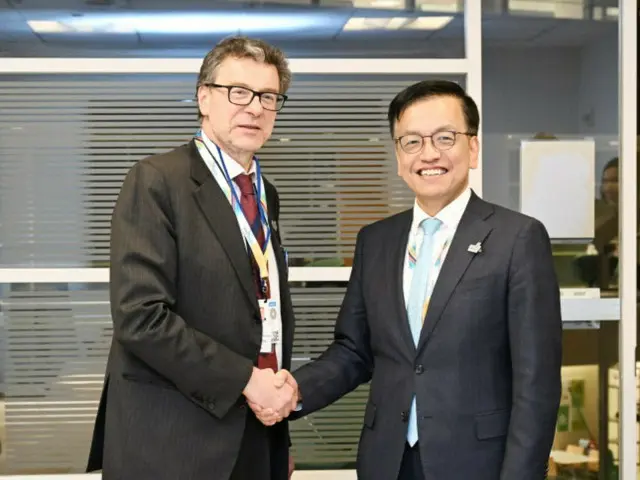According to the Ministry of Strategy and Finance, the Statistics Korea will release the results of the "2024 First Quarter Household Trends Survey" on the 23rd. The household trend survey will collect household income and expenditure statistics as well as household balance indicators that link income and expenditure.
The analysis focused on how the effects of the high interest rates and high prices that continued through the first quarter of last year were being reflected in household income.
The average monthly income (for households with one or more people, including agriculture, forestry and fisheries) was 5,024,000 won (approximately 579,000 yen), up 3.9% from a year ago, marking the second consecutive quarter of increase.
In the second quarter, transfer income rose 17.7%, leading the overall increase. Market income was classified as earned income (3,167,000 won/approx. 365,000 yen) and business income (1,035,000 won/approx. 11,000 yen).
The increase in real income reflecting inflation was only 1.9% and 1.7%, respectively. The reason for the decline in both real labor income and business income was
This is the first time in 11 quarters since the first quarter of 2021, when the COVID-19 pandemic was underway. The wealth gap in consumer spending is also drawing attention.
Average monthly consumption expenditures in the fourth quarter (1,283,000 won/US$1,480) decreased by 1.6%, the only decrease among all income quintiles. By item, spending on education was 52.4%.
The decline in household goods and services (down 14.6%) and alcohol and tobacco (down 11%) was also large. The average propensity to consume also fell by 7.3 percentage points. Meanwhile, income
Household spending for the top 20% increased by 8% to 7.217 million won (US$7,320), the highest increase of all quintiles, and average propensity to consume rose by 2.9%.
On the same day, the Korea Development Institute (KDI), a government-run research institute, will hold a "National Pension Reform Policy Discussion" together with the Korean Economic Association.
The discussion forum, which will be held under the theme of "Securing sufficient post-retirement income," will set key goals such as ensuring adequate retirement income, sustainability of pension finances, and intergenerational fairness, and will explore ways to achieve these goals.
First, Shin Seung-ryong, a research fellow at the KDI Finance and Social Policy Research Department, pointed out the current situation in which only adjustments to the base numbers are being proposed, which worsens fairness between generations, and said,
Professor JEONG SEWOON of Chungnam National University's Department of Economics will also present a structural reform plan, arguing for strengthening the security of the national pension system and for gradually raising insurance premiums.
The government plans to present alternative measures for fiscal stabilization, such as injecting funds into the national treasury, raising the retirement age, and maintaining the fund until the demographic structure stabilizes.
Deputy Prime Minister and Minister of Economy and Finance Choi Sang-mok attended the G7 Finance Ministers' Meeting.
On the 22nd, he will head to Stressa, Italy, to attend the G7 summit. The G7 is a group of seven developed countries, including the United States, the United Kingdom, France, Germany, Italy, Canada, and Japan, and the country that chairs the summit that year can contribute to the discussions.
The invitation was sent to Deputy Prime Minister Choi and Italian Prime Minister Kim Il Sung-ho, who attended the G20 Finance Ministers' Meeting in February of this year.
This was made possible through a meeting with Finance Secretary Giancarlo Giorgetti.
2024/05/19 07:03 KST
Copyrights(C) Edaily wowkorea.jp 107

